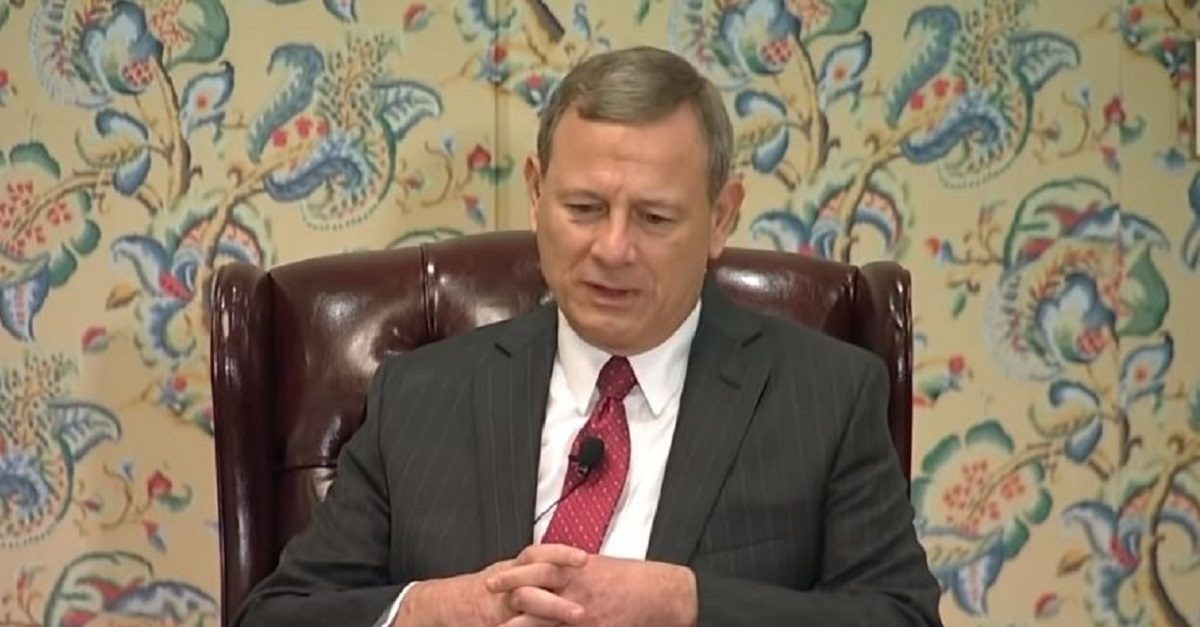
Several law professors took issue with CNN legal analyst Elie Honig’s on-air assessment of Chief Justice John Roberts’s authority in his role presiding over President Donald Trump’s upcoming impeachment trial in the Senate. Asked if the Chief Justice could “order witnesses to testify” even if Sen. Mitch McConnell (R-Ky.) disagreed, the former federal prosecutor on Sunday opined that such a command fell within Roberts’s constitutional power.
“I conclude that ‘yes’ – Chief Justice Roberts can, and I think should, overrule the majority if he has to,” he said.
“Now the Constitution tells us the Chief Justice ‘shall preside.’ No limitation. No qualification. That’s very broad,” Honig continued. “And the Senate rules say the Chief Justice gets to decide issues of evidence and witnesses, however, the [Senate] rules say, ‘We the Senate can overrule you [Chief Justice] by a majority.’”
Honig further elucidated his position in comments to Law&Crime.
“Senate rules allow a majority to overrule the Chief Justice on evidentiary matters (such as calling witnesses), but Roberts isn’t obligated to abide by the Senate’s internal rules. And if challenged, the explicit language of the Constitution – which states that the Chief Justice ‘shall preside’ – is clear,’ he said. “It means that he runs the thing, that he’s in charge. And there’s nothing in the Constitution limiting his authority. So when you put the Constitution up against Senate rules, the Constitution trumps every time.”
Honig also argued that history supported his stance.
“Chief Justice William Rehnquist famously said, ‘I did nothing in particular and I did it very well,’ but that doesn’t mean he couldn’t have taken a more aggressive role. If Roberts were to defy the majority, it’s not like they could throw him out of the chamber or just ignore him,” he said. “And reporting from Bill Clinton’s 1999 impeachment trial shows that even then the GOP was aware that trying to overrule the Chief Justice presented a major political obstacle as well.” Honig wrote more extensively about the topic last week at Café.com.
While there is no categorical enumeration of the Chief Justice’s precise powers, multiple law professors impugned the notion that Roberts would outrank a majority in the chamber.
“The biggest problem with this sort of BS is not that millions of people believe it, it’s that when it doesn’t play out, they think the reason is something nefarious rather than that they were just badly wrong in the first place,” Michigan State University College of Law professor Brian C. Kalt said.
University of Iowa Law professor Andy Grewal referred to the notion that Roberts could overrule a Senate majority as “fanfic”.
In an email to Law&Crime, Grewal noted that the Chief Justice lacks any “serious enforcement mechanism” for unilaterally subpoenaing a witness.
“The Senate no longer arrests potential witnesses who refuse to testify, and even if it did, the relevant officer would be the Senate Sergeant-at-Arms. That person works for the Senate, not the Chief Justice, and it is hard to believe that the Sergeant-at-Arms would ignore the Senate majority’s will, even if for some bizarre reason Chief Justice Roberts did,” he wrote.
Grewal provided a hypothetical example in which Roberts tried to compel testimony from former Trump National Security Advisor John Bolton.
“If the Senate majority does not want to issue a subpoena, they will not approve a lawsuit to enforce it. So we’re left with Chief Justice Roberts himself filing a lawsuit to compel Bolton’s attendance,” he said. “That possibility would make for good fictional drama, but it’s not grounded in reality. Roberts v. Bolton is not coming to a district court any time soon.”
Attorney Gregory Chernack, a lecturer at George Washington University Law School, similarly called the theory “idiocy.”
[image via CNN screengrab]